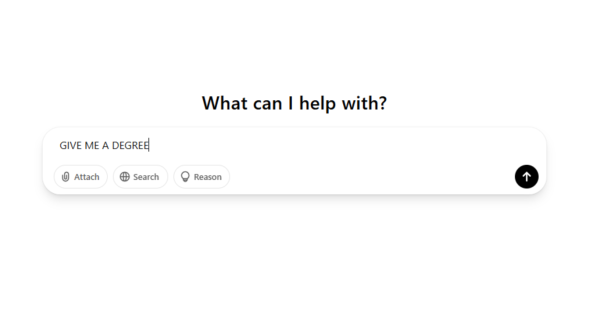Democratic Socialism: The final frontier for American economics and human morals
Kyle Gravel
Herald Contributor
Socialism, the verbal swear of grade school, has been blamed for everything from Hitler in Nazi Germany to Stalin in the Communist U.S.S.R., though neither example represents the true capabilities, moral responsibilities, and the economic social equilibrium that democratic socialism holds.
Avid capitalists fear that if this successful ideology rises, capitalism would die; thereon, the hopes of Marxists would become a reality–despite this concept being widely misunderstood. Democratic socialism would instead put more restrictions on corporations and owners. This would include limitations on how much more money a CEO can make compared to their employees and granting employees more rights and a higher minimum wage. Again, this can be considered unfair, but we must encourage a new perspective in order to diagnose the true intentions of this complex system.
While Sen. Bernie Sanders, an independent from Vermont ran on a similar platform, he cited statistics that would some would say are more in line with Trump’s “alternative facts” or “fake news.” As far as actual facts go, however, they were quite accurate; Sanders stated at the DNC and throughout his campaign that “The top one-tenth of 1 percent now owns almost as much wealth as the bottom 90 percent,” which is a statistic that has been marked true by Politifact.
Now many people ask, “Will my taxes be raised?”
In a short answer, yes, but what many fail to notice is that with these taxes, we the people would receive many benefits, rather than a pointless wall which would prevent nothing and bear the name of an arrogant hypocrite who is the least approved president ever. These benefits are the redistribution of wealth from the top billionaires to the middle and lower class which means better social security, free healthcare for all, reduced tuition costs for universities, and other public benefits.
Many countries, such as the United Kingdom, Denmark, Germany, and Canada, all have a social democracy and are doing very well economically. While non-regulated capitalism damages the moral compass of the U.S., putting greed over the well-being of others is an atrocity, and our citizens should be entitled to health care, for it is a right, not a privilege. While many people are working a job 40 plus hours a week, making minimum wage in order to support themselves–never mind a family–we must acknowledge the fact that the price of living has gone up significantly and our minimum wage has fallen behind.
Now, to paint a picture for you, if you take a family of four with two parents making minimum wage (which is $9.00 on a national average) that family’s yearly income would total to $37,440 with a 40 hour work week, though the standard of living for a family of four would have to be $46,000 per year in order for them to not fall below the poverty line. These statistics are assuming that the family has two working parents, which in many cases is not the truth. Over the years, our middle class has shrunk and the gap between the upper and lower classes has and continues to shrink.
With that said, we can infer that the family cannot afford a higher education for their kids, considering the extremely high prices for higher education in addition to basic essentials. There we see that the vicious cycle of poverty continues while a demand for a college education grows, making a high school diploma, in many cases, irrelevant for some paths of work.
What the countries that have a social democracy know is that investing in their youth is not only beneficial to the individuals, but the country as innovators and the educated minds will now work within their ranks, businesses, and communities. While many countries offer a higher education at a fraction of the cost compared to U.S. schools, Denmark takes it an extra step forward by paying their students for their participation within the university.
This system does not baby the citizen; it only gives them hope to a better life if they were to be inconveniently diagnosed with an illness, lose their job, or have a child. While Trump believes that a baby is “certainly an inconvenience to the workplace,” some countries in Europe believe life is a gift, giving months, if not a year, off with half annual salary to both parents who wish to go on parental leave.
On another note, many life-saving drugs such as EpiPens, cancer treating medications, and a new drug that can treat muscular dystrophy are being monopolized. Epi-Pen prices have surged almost 300 percent since last year, making the price of the life-saving device $600 in the U.S., sparking a political outcry. Meanwhile in the U.S., a similar pair of injectors costs the state-funded National Health Service 53 pounds ($69). Another example, and one that hits my family close to home, is a drug used to treat muscular dystrophy, which will hit the U.S. market with a price tag of $89,000 a year, which we cannot afford. In Europe, this treatment is available at a fraction of that cost.





